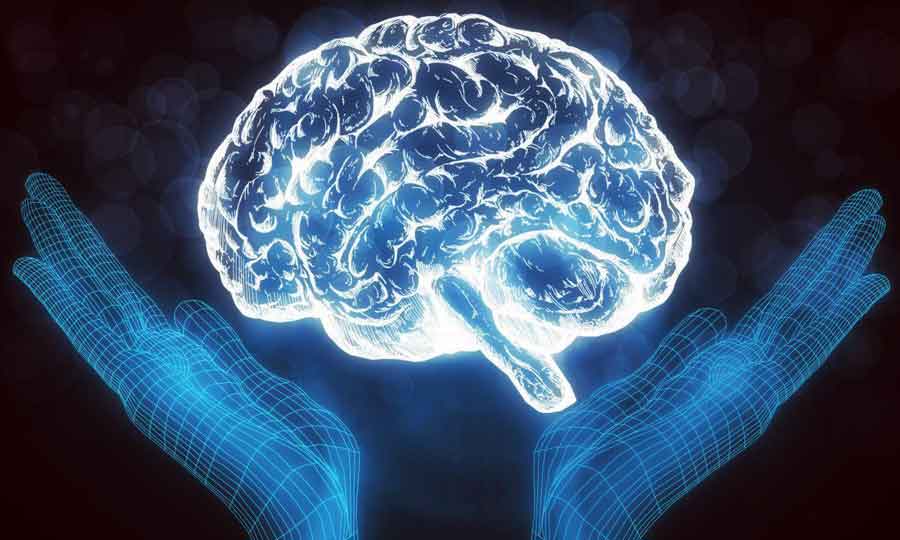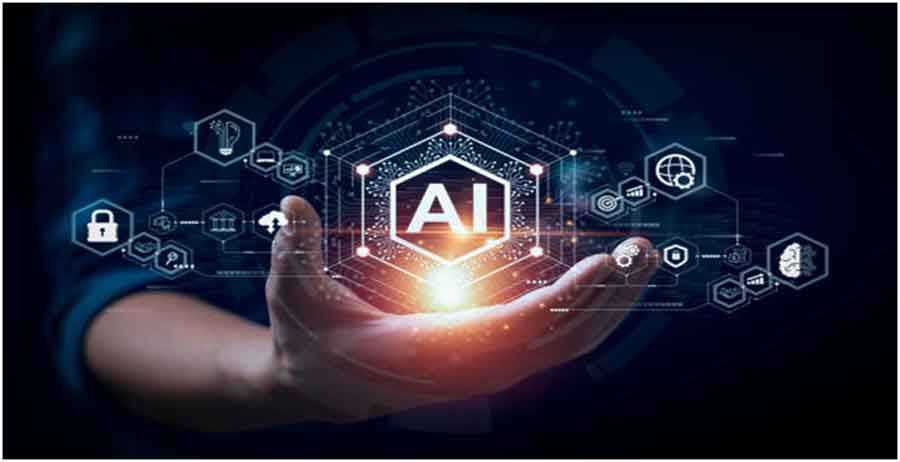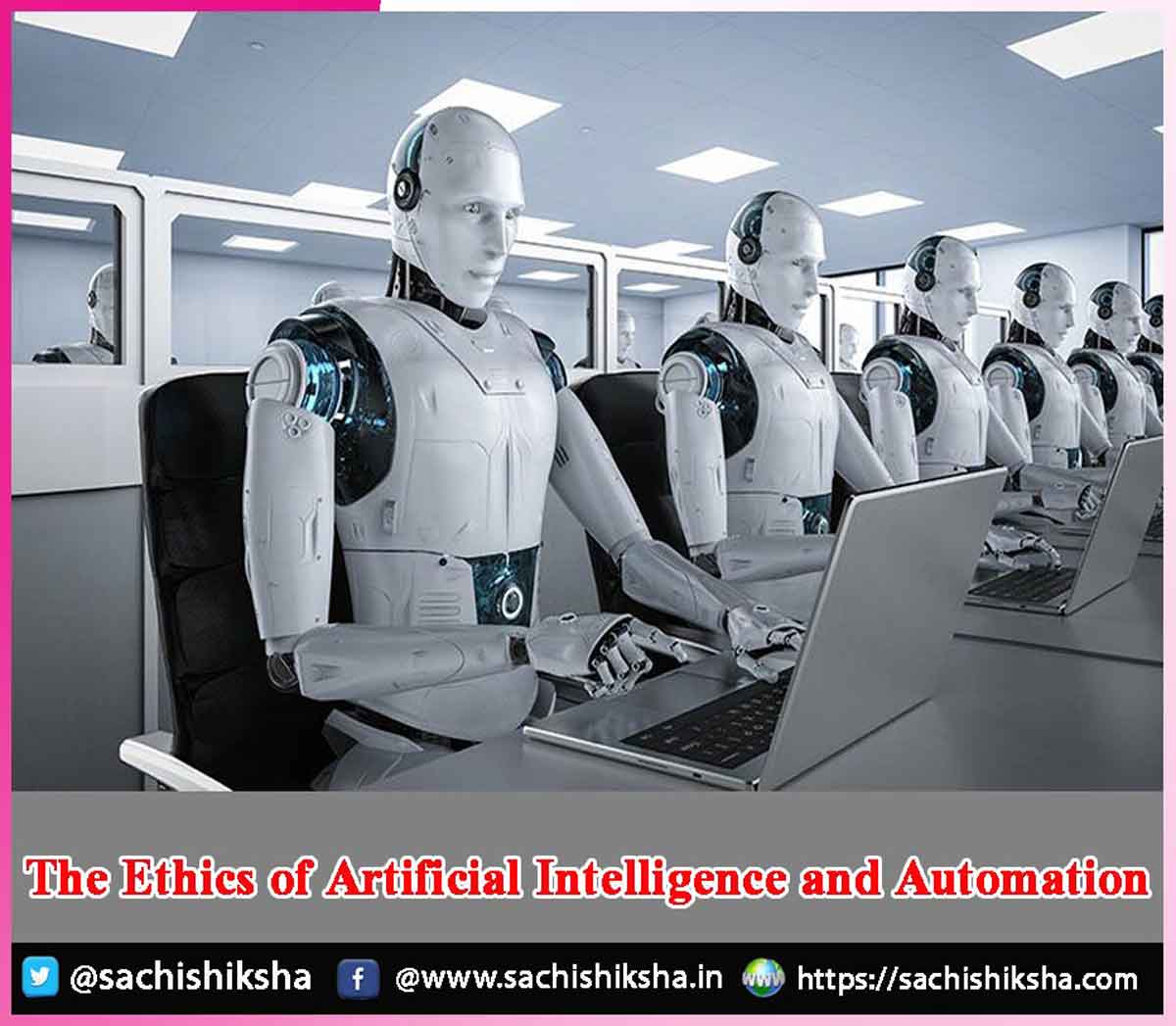The Ethics of Artificial Intelligence and Automation
Introduction: Ethics is a collection of moral standards that help us distinguish between what is right and wrong. AI ethics is an intersecting field that investigates ways to maximize the positive influence of AI while minimizing the dangers and adverse consequences.
Data protection and confidentiality, equality, simplicity, durability, openness, sustainable development, inclusivity, moral authority, values alignment, transparency, confidence, and misuse of technology are some examples of AI ethical challenges.

Table of Contents
Primary Domains of AI ethics
Protection:
This refers to an AI’s ability to avoid causing harm to mankind.
This entails not committing bodily injury or using inappropriate language. It also encompasses things like literary rights and safeguarding personal information.
Security:
It means the extent to which an AI can stop competitors from attacking it or exploiting it in a specific manner. It also relates to how successfully an AI can prevent itself from being compromised or controlled by individuals who seek to exploit it for bad purposes (such as money theft).
Privacy:
It relates to the quantity of data an AI system understands about you, where it receives its data, where and how it saves the information, what type of analysis instruments it employs with that data, and so on. In simple terms, any technological corporation uses/shares everything connected to your confidential details!
Fairness:
This encompasses the extent to which the rights of consumers remain intact while dealing with an organization’s services or goods.
Principles of AI Ethics
AI systems should be developed and utilized in such a way that they are secure, reliable, and confidential. Effective self-driving system builders and designers have to:
- Make sure that they are robust, dependable, and credible.
- Implement procedures that represent social ideals and goals as they engage with persons who are not under their direct control.
- Make certain that their designs are adaptable, so that they can gain knowledge from practice and enhance their efficiency and potential over time.
- Take into account the whole range of human demands in their layout, such as encouraging protection, confidentiality, reliability, justice, openness, responsibility, and social inclusion through AI technologies.
- Make sure that they are capable of clarifying how they come about make judgments so that individuals can comprehend them and fix any flaws that are created.
- Verify that these innovations are meant to safeguard human rights, such as privacy, liberty of speech, physical well-being, and liberty from harsh or humiliating behaviour.”
- While designing such devices, keep their effect on society in mind.
Concerns in AI Ethics
As an emerging discipline, AI ethics remains in the early stages of development. AI has numerous ethical and risk implications. Although AI ethics is a new area, there are no defined standards or principles. As a result of these AI ethical difficulties, evaluating to what extent any specific programme performed ethically can be difficult when there are no set rules to establish what makes up ethical behaviour.

Automation and Artificial Intelligence (AI) are technological innovations with an elevated level of development and a chance to revolutionize numerous industries while also changing the way people conduct themselves and work. As robots and algorithms grow increasingly capable of executing tasks that were once regarded to be solely the realm of people, it is critical to address the implications for employment and human skills.
The implementation of technological advances, such as devices and robots, to carry out tasks that have been done manually is referred to as automation, whereas Artificial Intelligence (AI) is a portion of automation which includes creating computer systems capable of performing tasks that typically call for intelligence from humans, such as studying, resolving issues, and making choices. Automation and Artificial Intelligence (AI) have the ability to have significant effects on jobs in the years to come. Researchers have observed a spike in AI technology application in numerous fields such as image, text, and entertainment output in the recent year.
On the one hand, automation and AI may result in loss of employment since machines and programmes may undertake functions traditionally performed by humans, resulting in a fall demand for a number of occupations and a decline in earnings for employees in certain industries. On the contrary, AI may reduce need for certain sorts of human abilities, such as monotonous or routine tasks, while increasing demand for others, such as computing, analyzing information, and AI/machine learning.
There are also ethical worries regarding how it affects on human talents such as innovative thinking, critical thinking, and solving challenges, which may contribute to a drop in the total level of skills required in various professions usually linked with Artificial Intelligence.













































